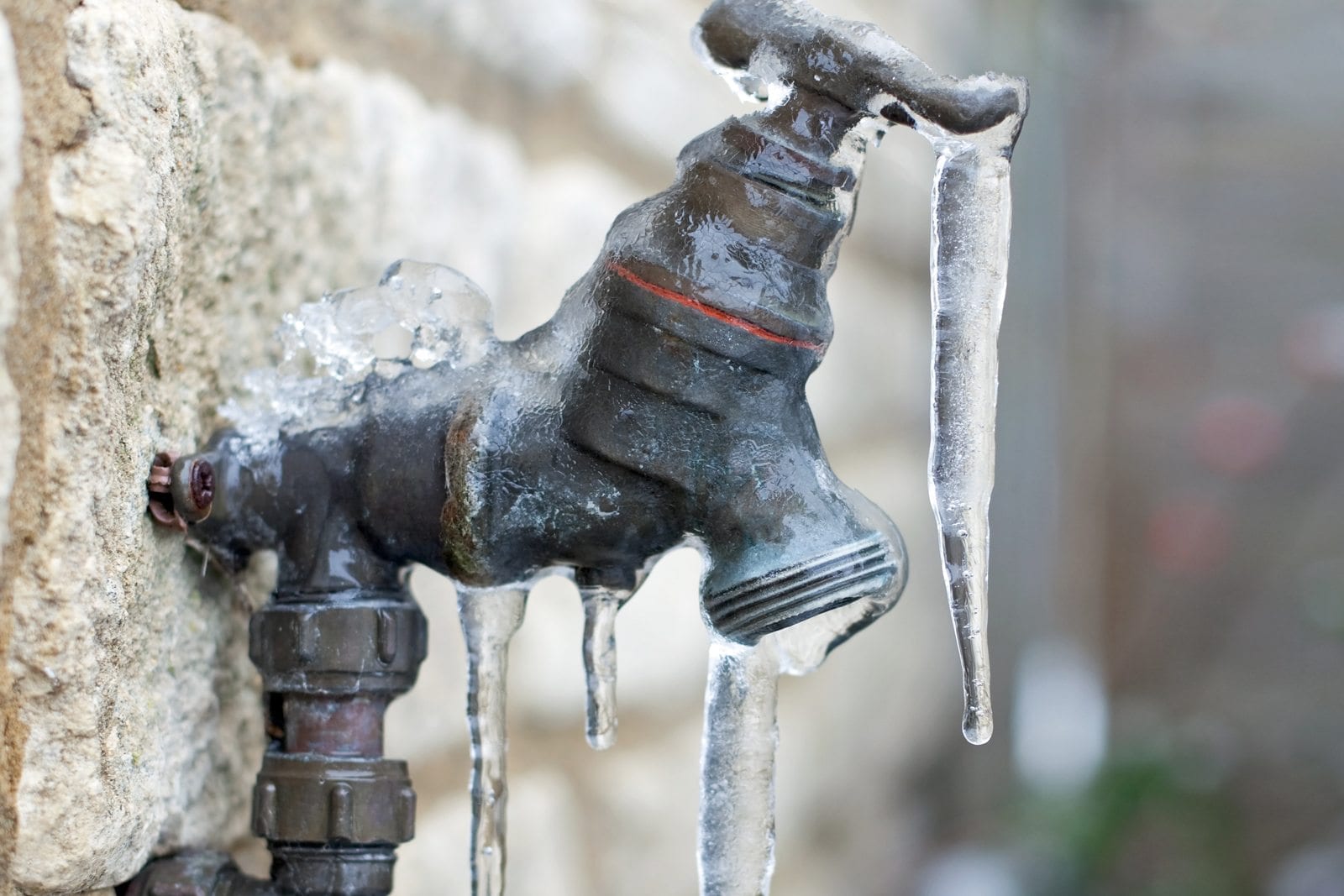Business
Preparing Your Plumbing for Winter: Tips to Prevent Frozen Pipes & Burst Lines
Published
3 months agoon
By
Prime Star
Winter can bring a host of challenges for homeowners, and one of the most expensive and damaging problems is frozen and burst pipes. When the temperature drops, water inside your pipes can freeze, causing them to expand and eventually burst. This can lead to significant water damage, costly repairs, and potential destruction of your home’s plumbing system.
To avoid these issues, it’s important to take proactive steps in winterizing your plumbing. In this article, we’ll cover essential tips to help you prevent frozen pipes and burst lines. With the right preparation, you can protect your home and ensure that your plumbing system runs smoothly throughout the cold months. And if you need professional help, AAA Organized Plumbing is here to assist with any plumbing needs.
- Insulate Pipes in Unheated Areas
Why It’s Important
Pipes that are located in unheated areas, such as basements, attics, crawl spaces, and garages, are the most susceptible to freezing during winter. If these pipes freeze, they can expand, crack, and potentially burst, causing significant water damage.
What to Do:
- Insulate exposed pipes: Use pipe insulation foam or fiberglass to wrap pipes in unheated areas. This insulation helps keep the temperature around the pipes above freezing.
- Use heat tape or cables: For pipes in areas that are particularly vulnerable to freezing, consider installing heat tape or heat cables. These are electric heating elements that wrap around pipes and keep them warm, preventing freezing.
- Cover gaps and cracks: Seal any cracks, gaps, or openings around windows, doors, or walls that may allow cold air to reach exposed pipes. Use caulk or foam sealant to fill in these openings.
How It Helps:
Proper insulation helps maintain a consistent temperature around the pipes, significantly reducing the risk of freezing. Taking this step will prevent costly repairs from burst pipes.
- Let Faucets Drip During Extreme Cold
Why It’s Important
One of the best ways to prevent pipes from freezing is by keeping water moving through them. Even a slow drip can help prevent the water inside the pipes from freezing, as the continuous movement of water reduces the chances of it freezing solid.
What to Do:
- Let faucets drip: On particularly cold nights or during extreme cold weather, leave a faucet slightly open, especially if the faucet is located on an exterior wall or near an unheated area.
- Focus on vulnerable pipes: Prioritize faucets located in areas most likely to freeze, such as those in the kitchen, bathrooms, or outside walls.
How It Helps:
Dripping water through your pipes keeps the flow moving and makes it less likely for the pipes to freeze and burst. It’s a simple and effective strategy to protect your plumbing system during the coldest months of the year.
- Open Cabinet Doors to Allow Warm Air Circulation
Why It’s Important
Pipes located inside cabinets (especially those under sinks in kitchens and bathrooms) can freeze if they don’t receive enough heat during the winter months. Keeping these areas warm will prevent the pipes from freezing.
What to Do:
- Open cabinet doors: In areas where plumbing is located behind cabinetry, open the cabinet doors to allow warm air to circulate around the pipes. This is especially important for sinks on outside walls.
- Keep interior doors open: Open interior doors to allow warm air to flow more freely throughout the house, ensuring that all areas are properly heated.
How It Helps:
By opening cabinet doors, you’re allowing warmer air from your home to reach pipes in cabinets, significantly reducing the risk of freezing in those vulnerable areas.
- Disconnect Outdoor Hoses and Shut Off Outdoor Faucets
Why It’s Important
Outdoor faucets are at high risk of freezing because the water supply to these faucets is exposed to the cold air. When water remains in the pipe during freezing temperatures, it can freeze, causing the pipe to expand and crack.
What to Do:
- Disconnect garden hoses: Before the weather turns cold, disconnect any garden hoses from outdoor faucets to prevent water from freezing in the hose and damaging the faucet or pipe.
- Shut off outdoor water supply: If you have an outdoor shut-off valve (typically found in basements or crawl spaces), turn it off and drain the water from the pipes.
- Cover outdoor faucets: Install faucet covers or insulated wraps to protect outdoor faucets from freezing. These covers act as a barrier, insulating the faucet from cold air.
How It Helps:
By disconnecting hoses and shutting off the outdoor water supply, you prevent water from remaining in the pipes and freezing, which can protect your plumbing from burst pipes.
- Maintain a Consistent Indoor Temperature
Why It’s Important
If you’re leaving your home for an extended period, such as going on vacation or visiting relatives for the holidays, you must ensure that the indoor temperature remains above freezing. If your home drops below freezing, pipes inside the walls, floors, or crawl spaces could freeze and burst.
What to Do:
- Keep the thermostat consistent: Set your thermostat to at least 55°F (13°C), even if you’re leaving the house for an extended period. If you plan to be away, ask a neighbor or friend to check on the home periodically to ensure everything is running smoothly.
- Avoid turning the heat too low: Some people lower their thermostats to save energy during the winter, but letting the temperature drop too low can cause problems. Always maintain a safe, consistent indoor temperature.
How It Helps:
Maintaining a consistent temperature throughout your home ensures that the pipes are kept at a safe temperature, reducing the risk of freezing. Even a slight decrease in temperature can be enough to freeze vulnerable pipes.
- Insulate Attic and Crawl Space Pipes
Why It’s Important
Pipes located in attics or crawl spaces are particularly susceptible to freezing, as these areas are often poorly insulated and subject to extreme temperature fluctuations. Insulating pipes in these areas will help maintain the temperature of the water inside and protect them from freezing.
What to Do:
- Insulate exposed pipes: Use foam pipe insulation or fiberglass to insulate the pipes in attics and crawl spaces. Insulation will help prevent cold air from affecting the pipes, keeping them warm during the winter months.
- Seal cracks and gaps: Check for any cracks or gaps in the attic or crawl space where cold air can enter. Use caulk or foam sealant to fill any gaps and improve insulation.
How It Helps:
Insulating the pipes in unheated spaces ensures that they remain protected from the cold, preventing freezing and potential bursts. This is a highly effective way to reduce the risk of plumbing issues during winter.
- Keep Gutters Clean and Clear of Debris
Why It’s Important
Clogged gutters can cause water to back up and pool around your home’s foundation, which can lead to foundation damage or flooding in your basement. Additionally, if water gets trapped in the gutters and freezes, it can lead to ice dams, which can affect the roof and attic.
What to Do:
- Clean gutters regularly: Remove leaves, twigs, and debris from gutters to ensure that water can flow freely. This should be done before winter sets in, ideally during fall.
- Install gutter guards: Consider installing gutter guards to reduce the amount of debris that enters the gutters and ensure proper drainage during the winter.
How It Helps:
Keeping your gutters clean allows for proper water drainage, preventing issues like ice dams or foundation damage from water backing up around your home.
Conclusion
Winterizing your plumbing is one of the most important steps you can take as a homeowner to prevent costly repairs and potential water damage. By insulating pipes, maintaining your water heater, disconnecting outdoor hoses, and ensuring that your indoor temperature remains steady, you can protect your home from frozen pipes and burst lines.
If you need help preparing your plumbing for winter or encounter any issues, AAA Organized Plumbing is here to assist. Their expert team specializes in winter plumbing preparation and can ensure that your plumbing system is ready for the cold months ahead.
Don’t wait for frozen pipes to cause damage contact AAA Organized Plumbing today to schedule your winter plumbing inspection or any necessary maintenance.
About AAA Organized Plumbing
AAA Organized Plumbing is a trusted plumbing service provider dedicated to keeping your home’s plumbing system in top condition year-round. From winter plumbing preparations to emergency repairs, AAA Organized Plumbing offers reliable, professional services to help protect your home from the harsh effects of winter. Visit their website to learn more and schedule an appointment today!
Business Name: AAA Organized Plumbing
Address: 1252 Airport Park Blvd STE A4, Ukiah, CA 95482
Phone number: (707) 621-8282

Tips and Tricks for First-Date Men’s Fashion in 2026

Call My Doctor Health Care LLC Sets a New Standard for Home Healthcare in Dubai

StableProxy Review: What Is It and Why You Might Need It in 2026

Recording Apps: Best Picks for Audio Capture in Screen Recording (2026 Guide)

7 Curb Appeal Improvements Your Home Might Be Crying Out For

Why Ahmedabad is a Must Visit City in India?

Trend vs Investment: Which Watch Features Stay Stylish for Years (Crystal, Case, Dial, Bracelet)

Corporate Reputation Management and the Cost of AI-Generated Errors

Hidden Costs of Economy Umrah Packages: A Breakdown of Extra Fees

RF PCB Solutions: How FastTurn PCB Powers High-Frequency Electronics with Precision

Who Is Marlene Knaus? The Untold Story of Niki Lauda’s First Wife

Jacqueline Bernice Mitchell: The Inspiring Story of Jerry Rice’s Ex-Wife

Curious About JOI Database? Read This First Before You Click Anything

Mickey Middleton: The Untold Story of Bryan Cranston’s First Wife

Where Is Barbara Boothe Now? Inside Her Life After Larry Ellison

Wendy Lang: Meet the Therapist Married to Cenk Uygur

Alisande Ullman Today: What Happened After Her Divorce from Leslie Nielsen?

Where Is Noelle Watters Now? Jesse Watters’ Ex-Wife’s Life After Divorce

Should You Use Wooflix in 2025? Honest Review and Best Alternatives

Where Is Tanya Hijazi Now?: All About Rick James’ Former Wife

Tips and Tricks for First-Date Men’s Fashion in 2026

Call My Doctor Health Care LLC Sets a New Standard for Home Healthcare in Dubai

StableProxy Review: What Is It and Why You Might Need It in 2026

Recording Apps: Best Picks for Audio Capture in Screen Recording (2026 Guide)

7 Curb Appeal Improvements Your Home Might Be Crying Out For

Why Ahmedabad is a Must Visit City in India?

Trend vs Investment: Which Watch Features Stay Stylish for Years (Crystal, Case, Dial, Bracelet)

Corporate Reputation Management and the Cost of AI-Generated Errors

Hidden Costs of Economy Umrah Packages: A Breakdown of Extra Fees

RF PCB Solutions: How FastTurn PCB Powers High-Frequency Electronics with Precision
Categories
Trending
-

 Celebrity8 months ago
Celebrity8 months agoWho Is Marlene Knaus? The Untold Story of Niki Lauda’s First Wife
-

 Celebrity5 months ago
Celebrity5 months agoJacqueline Bernice Mitchell: The Inspiring Story of Jerry Rice’s Ex-Wife
-

 Entertainment6 months ago
Entertainment6 months agoCurious About JOI Database? Read This First Before You Click Anything
-

 Celebrity6 months ago
Celebrity6 months agoMickey Middleton: The Untold Story of Bryan Cranston’s First Wife
